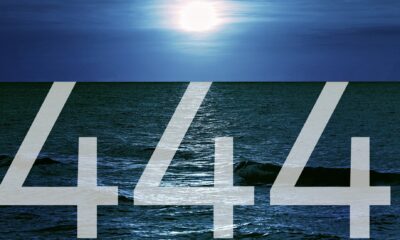Are You Drowning In Tech? Me Too!
Are we drowning in tech in today’s modern world?
How has tech impacted our lives and our occupations?
Let’s examine the issue of drowning in tech with an older poem.
“The Mill,” a poem by Edwin Arlington Robinson, is only three stanzas long but packs a punch.
In the first stanza, a wife recalls that her husband stood at the door before leaving for work and said, “There are no millers anymore.”
During the second stanza, the husband has failed to return home at the end of the day, the wife either imagines that he has hung himself or actually goes down to the mill and finds him hanging.
In the third stanza, she either imagines drowning herself in response to his hanging, or she actually does drown herself.
It’s up to the reader to decide whether the double suicides are intended to be actual or imaginary, but I don’t think that is the poem’s point.
This poem from 1920 does a good job illustrating how many are drowning in tech
Since “The Mill” was written in 1920, when many occupations were becoming obsolete because the Industrial Revolution was in full swing—generating machinery to replace every sort of manpower—we can assume the miller knows he is about to lose his job, to be replaced by a machine.
Not only will he lose his income, but he will lose his identity.
The change that has occurred in the last decade or so because of the IT Revolution (which some call the new Industrial Revolution) is as (or more) significant than the change brought about by the Industrial Revolution.
Many people have lost their jobs and, with them, their identities.
Imagine how many times in the last decade someone somewhere leaving for a final day at work must have mumbled, “There are no photo lab technicians anymore.”
Or “There are no typesetters anymore.”
Besides the jobs that have disappeared, many more are on their way out.
Goodbye, newspaper journalists.
Goodbye, official book reviewers and production workers.
Bookstore owners, yellow page salespersons, travel agents, and telephone operators all these jobs are, or will be, eliminated by machines and technology.
But losing various occupations is only one component of our current change.
The impact of technology goes beyond occupations
The other is the impact of our relationship with the products of the IT Revolution.
Like our computers, smartphones, and tablets.
In addition to losing our career identities, we are restructuring what it means to be “us” as a society.
We can now receive information all the time: we are information receptacles.
We are global.
Now you can find out what is happening today in Delhi before we know what is happening in the next room.
Our sense of community is often more dependent on our FaceBook friends (many of whom we may not even know) than on our neighbors or any affiliations we might have with local clubs or leisure-time organizations.
I would no sooner recommend that we throw out our IT devices and return to how things were than anyone living in the ‘20s would rid their home of electricity.
But let’s face it: we have entered The Age of Distraction.
I know for a fact—because I am as much a victim of my devices as anyone—that I now have chinks in the tunnel of my tunnel vision.
I used to congratulate myself on being able to really concentrate.
So, when working on something important to me or a client, why don’t I shut down my devices?
Or put them in another room where I can’t hear the dings, bings, whistles, and bells calling out to me?
Why don’t I attempt to restore my former level of concentration?
Do I really think something so important that it cannot wait might be mixed with the cute doggie videos?
Or the stills of what “friends” ate for breakfast, reposts of some politician’s faux pas I saw twice on CNN, emails from newsletters I signed up for, lost interest in, and never got around to unsubscribing?
I am no psychologist, but I suspect the changes brought about by the IT Revolution will influence our human evolution markedly.
For one, I notice we are getting really good at multitasking.
The younger we are, the better we can do two or three or four things at once.
Two teenage girls sitting in front of me in the movie theater the other day managed (seemingly) to enjoy the show (The Big Short).
All while texting, checking, and responding to emails, using the flashlights on their smartphones to check their legs for stray hairs, and, at least twice, taking selfies.
Maybe they only got the gist of the movie, but maybe getting the gist is enough.
Maybe living in an IT world is about essence.
Who am I to judge people drowning in tech?
I remember in the old days when my landline phone was connected to an outlet in the wall by a long curly cord.
Often I would stretch the cord as far as it would go.
Trying to get to the window, sink, or the dust ball lying half-hidden under the sofa because long conversations, such as we all had back then, sometimes got boring.
I yearned to do something else simultaneously to be more “productive.”
I yearned to multitask, but technology impeded my efforts.
Now that I do multitask, I yearn for boredom.
I miss it.
Back in the old days, if I had some time “to kill” between activity A and activity B, I would plop down in an armchair, resentful at first of the gap stretching ahead.
But then, before long, I go off into a dream state.
A daydream!
Sometimes those daydreams were nonsense.
Other times they were nonsense that became insights!
Ideas I might want to stick into books.
Ideas to improve my life!
Quiet time equals creativity; that’s my mantra.
As we learned in The Who’s Pinball Wizard, cutting down on distractions illuminates the path to success.
Obviously, there is a fine line between enjoying the benefits of living in an IT world and succumbing to IT.
The girls in the movie theater were surely overdoing it.
While I wanted to smack their heads together during the movie, afterward, I realized that these girls grew up in the IT world.
They’ve never experienced life without IT.
They are like the fish who ask each other, “What the hell is water?” in David Foster Wallace’s famous commencement speech.
But then we all swim in our own lakes, don’t we?
We are all victims, to a large extent, of the times we live in.
I’ve compiled a list of actions to ensure I don’t drown in the sea of IT.
Some of these actions sound like no-brainers.
But I have occasionally caught myself doing the very thing they are meant to offset.
- Never check your email messages right after you awaken. Dreams bring visions, prophetic communications, and, sometimes, visits from people from high school. Give yourself at least a half hour to drift into the dream state before you go into IT action.
- Never take your electronic devices into the bathroom to check messages. Reading stories on electronic devices in the bathroom is okay because it’s the equivalent of bringing a newspaper or magazine.
- Try going on increasingly more distant errands without carrying your smartphone. (So far, I’ve mastered the grocery store, at .5 miles, and the bank, at 1.5 miles.) Don’t use “What if I get a flat tire?” as an excuse because you’ll probably be close enough to walk home for quite a while.
- Don’t take your phone out in public places, especially restaurants, when you are with a friend. It seems downright rude to check messages when a human, in all his/her glory, is sitting across the table from you—unless he/she is checking messages too.
- Wear a watch when you go out so you won’t be tempted to check the time on your phone, which could easily result in glancing at the “push” notifications on the screen, which could wind up engaging you at a time (like when you’re driving) when you shouldn’t be otherwise engaged.
- Never ever use your phone when you’re driving.
- Mute all your devices when working or engaged in projects that have meaning for you. You will be surprised at how fast your brain power comes back.
- Take vacations to places where there is no IT service.
- Read books.
- Fall in love.
- Learn to swim.
Share your thoughts in the comment section.
If you found this article helpful, click the share button.











